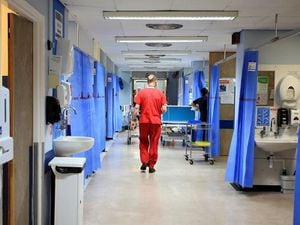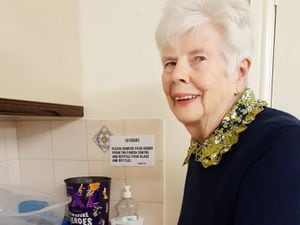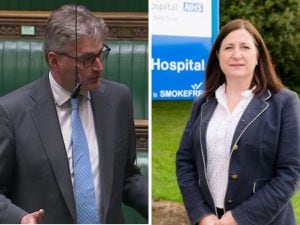Revealed: 40 per cent of Shropshire cancer patients in repeat GP visits before hospital referral
Two in five patients diagnosed with cancer in Shropshire required repeat visits to their GP before being sent for tests, figures reveal.

The latest NHS National Cancer Patient Experience Survey, completed by 645 people with cancer in the Shropshire Clinical Commissioning Group (CCG) area, found that dozens saw family doctors at least twice before being referred for tests in 2018.
In the Telford & Wrekin CCG area 291 people took part in the survey.
In Shropshire, out of the 466 patients who saw their GP with symptoms, 29 made five or more visits before they were eventually sent to hospital for further investigation.
Another 63 saw their GP three or four times, while 96 visited twice.
In Telford, out of 207 patients who saw their GP with symptoms, 19 made five or more visits before they were sent to hospital, while 27 saw their GP three or four times, and 37 visited twice.
Overall across both areas 40 per cent required repeat visits before being sent for tests.
Asked to rate their care on a scale from zero (very poor) to 10 (very good), respondents in Shropshire and Telford gave an average score of 8.8 – lower than the previous year's 8.9.
This matches an 8.8 average rating for cancer care across England.
Gail Fortes-Mayer, executive cancer lead on behalf of both Shropshire and Telford & Wrekin Clinical Commissioning Groups, said: “We are working hard to improve the experience for patients who may have symptoms that require tests for cancers of all types.
“This can be an unsettling experience for the patient and their loved ones and we need to ensure they are fully supported by their GP team and have appropriate, timely access to diagnostic tests.
“There are many reasons a patient may make repeat visits to a GP before a diagnostic appointment, for example, to have further conversations about their condition to ensure the referral to testing is appropriate and thorough, or a GP may want to ensure that medications are reviewed during the period before tests.
Improve
“Equally, patients may choose to see their GP in advance of a diagnostic appointment to find out more about what they can expect in order to reduce their understandable anxieties.
“Patient experience data is very important to us as commissioners and we will be reviewing the results of this survey in full to inform our ongoing efforts to improve services for our patient population.”
The annual survey, carried out on behalf of NHS England, attracted nearly 74,000 responses from cancer patients across the country.
Ruth May, NHS England's chief nurse, said: "Patients' satisfaction with their cancer care remains at a record high, with nine out of 10 patients happy with the care and support they've received, which is testament to the hard work and compassion of NHS staff.
"This is despite record numbers getting checked for cancer and surviving it, with 2.2 million getting checked for cancer last year.
"The NHS Long Term Plan will ensure that even more people receive earlier cancer checks alongside the best possible care and lifesaving new treatments."
Dr Richard Roope, clinical lead for cancer for the Royal College of GPs, said that despite "increased pressures" facing GPs, emergency presentations of cancer are at an all-time low.
He added: "It is notoriously difficult to diagnose many cancers in primary care. Particularly in the early stages of the disease, often there are either no symptoms or they might be vague and indicative of other, more common conditions.
"GPs and our teams also need to be mindful of onward pressures in secondary care, and often come in for criticism for over-referral, as well as not referring enough.
"The most effective way to address this is to give GPs and our teams in primary care better access to the appropriate diagnostic tools in the community, and the training to use them."





